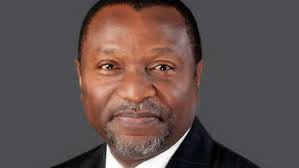The Federal Government may present N8.9 trillion Appropriation Bill to the National Assembly for consideration in the 2019 fiscal year, if the available proposals by the Budget Office are used as basis of projection.
The proposed figure, if eventually agreed upon by the Legislature, would represent an increase of N305.86 billion over the N8.61trillion budgetary estimates presented to the joint session of the National Assembly by President Muhammadu Buhari on November 7, 2017 for the current fiscal year.
The figures are contained in the Fiscal Strategy Paper prepared already by the Budget Office of the Federation as the fiscal template for the 2019 Appropriation Bill.
Curiously, the proposed N8.9 trillion budget for 2019 fiscal year is about N220 billion less than the approved N9.12 trillion budget for the current year.
A further decomposition of the FSP for the 2019 fiscal year indicated that the Executive is targeting N6.32 trillion as revenue income to fund the budget, representing about N840 billion less than the approved revenue projection of N7.16 trillion targeted this year.
According to the Budget Office, while a fiscal deficit of N2.59 trillion is being projected for the 2019 fiscal year as against N1.9 trillion in the current year, the ratio of budgetary deficit to the Gross Domestic Product (GDP) is estimated at 2.08 percent.
The FSP proposed further that the percentage of capital expenditure in the proposed budget is projected to decline to 29.57 percent, down from the 31.5 percent in the approved budget for this year while recurrent expenditure as a percentage of proposed budgetary expenditure is projected to rise to 70.43 percent, up from the 68.5 percent in this year’s budget.
In addition, the document provided for a capital expenditure as a percentage of non-debt expenditure of 41.28 per cent for 2019 fiscal year.
Similarly, a further analysis of the fiscal template as proposed by the Budget Office reflected a debt service to revenue ratio proposal of 6.53 percent next year, up from the 30.76 percent provided this year, while deficit as a percentage of the targeted government revenue is projected to rise to 40.95 percent, up from the current 27.22 percent.
The Budget Office has also set 2.4 million barrels per day (bpd) oil production and proposed an oil benchmark price of $50 per barrel for the 2019 budget.
On revenue accruals for the fiscal year, the office also proposed N3.24 trillion as revenue from oil sector as against the non-oil accruals targeted to rise to N1.55 trillion next year as against the N1.24 trillion approved this year.
The non-oil revenue is to be sourced from sundry sources, including Companies’ Income Tax (CIT) which is expected to generate N906.1 billion, Value Added Tax (VAT) is expected to rake in N264.1billion; and the Nigeria Customs Service (NCS), N324.25 billion.
Other revenue sources captured in the FSP for the 2019 fiscal year are, Independent Revenue, which is projected to gross N890.34 billion, Special Levies, N12.9 billion, Domestic Recoveries Assets and Fines,, N203.37 billion; Other Recoveries, N168.97 billion; and Grants and Donations, N209.9 billion.
As per the 2019 fiscal year expenditure heads, the document proposed N2.38 trillion for capital budget, representing a marginal decline from the N2.42 trillion approved this year while debt service is expected to gulp N2.31trillion next year compared to the N1.95 trillion approved for this year.
In addition, recurrent expenditure (non-debt) is proposed to gulp N3.16 trillion in fiscal year 2019, down from the N3.51 trillion provided in the current year’s budget. Personnel costs is projected at of N2.1 trillion; Overheads, N210 billion; Pensions, N220 billion; Power Sector Reform Programme, N251.4 billion; Service Wide Votes, N208.6 billion; and Presidential Amnesty Programme, N70 billion.






